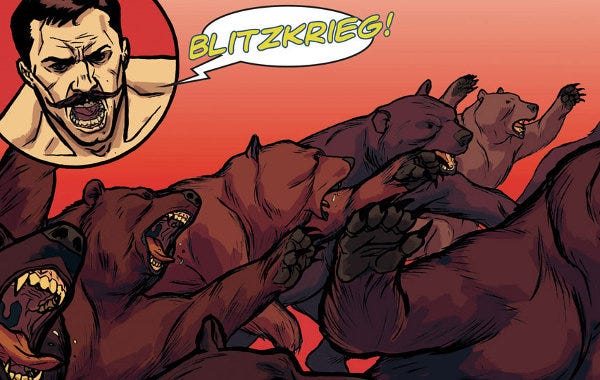So What, Who Cares (vol 2, issue 10) Which industry's layoff news is the most (un)surprising

Hello! I have been informed by my daughter's preschool teacher that this Friday is National Pie Day. I had been laboring under the misimpression that we were to celebrate one of nature's more perfect baked goods with mathematical jokes on March 14, so I am thrilled that the power of homophones works for me this time around. Let there be two pie-serving festivals on the calendar!
Are you into pie? Tell me your favorites via email or Twitter -- or share your strong opinions against pie. I'm sure there's an argument to be made.
*
The tech industry led all other sectors in job cuts in 2014, with 59,528 jobs eliminated last year. This was in the same year when the Bureau of Labor Statistics calculated that 113,000 new tech industry jobs were created.
So what? The number of job cuts in the tech sector jumped 69% year over year from 2013 to 2014. The companies effecting the job cuts are often bigger, older ones that are looking to streamline less lucrative divisions and reduce overhead so they can compete with younger, nimbler companies. There's at least one analyst who thinks this is the beginning of a new tech industry shakeout.

Who cares? People who are in the demographic best described as "Enter the Carousel. This is the time of Renewal." Older technologies can still make some money -- the world hasn't shifted wholly to the cloud, for example, so data center services are still in play for a bit -- but money and talent tend to stampede to newer companies that don't have a whole lot of legacy infrastructure. And older companies are "deciding that it’s faster and cheaper to chuck people overboard and find new ones than it is to retrain them."
As Matt Rosoff (current West Coast bureau chief for Business Insider, former "guy who sat behind me at work") pithily summarized: "Good reminder that today's indispensable 27-year-old code warrior is tomorrow's embittered 45-year-old middle manager at a dying company."
*

Email is the technology that just can't be killed. A Pew Research survey found that 61% of employed Internet users cited email as "very important" to their job.
So what? Consider the spam. Consider the menace of reply-all. Consider the email bankruptcy. Even with all those obstacles, email is the tool actual workers consider to be useful to them in managing their workflow. Why? Because it's a flexible platform for its users and with a little social engineering, it's a very effective way to initiate, create and archive a history of communication tied to specific tasks or projects.
Who cares? All those people working on so-called "email killer" technology.
Unless and until they can come up with another ubiquitous, decentralized, open technology platform that allows for easy customization and user-side personalization (people use it for everything from receiving news to managing their to-do lists), email may continue its reign in the office as way-to-nag-your-coworker-cum-digital-filing-cabinet-for-past-work.
*

This just in: When you stop referring to women as "plus-sized," they want to buy your clothes.
So what? We've covered this before (vol 1, issue 19), but a key insight that Aimee Cheshire, who launched Hey Gorgeous, brings to the narrative is this:
By rebranding the site without "plus" associated, Cheshire is able to capture a customer who doesn't necessarily identify as plus-size — one of the biggest hurdles to winning over the plus-size customer.
Who cares? People who buy or sell clothing. Cheshire's insights into the human condition don't stop with "Here's how the size 10/12/14/16 women of America view themselves." She also notices that eliminating the "plus size" label is a great way to erase a barrier that has impeded women's enjoyment of shopping as a social experience. American consumers love their third places -- and Cheshire's found a way to make shopping a virtual third space for girlfriends who want to swap links to cute clothes without making anyone feel awkward about their size.
*

Your pop culture moment of the day: When my pal @omarg recommended Ryan Browne's comic God Hates Astronauts repeatedly to fellow comics fans last week, I knew I had to check it out.
Omar warned me, "it’s really aggressively dumb, but in the most awesome way," and he is not kidding.
The book is hilarious, but only if you think a coven of bears raising a heavyweight boxer from the dead is funny and if you find the idea of a superhero modeled on Reginald VelJohnson -- only with gorilla's arms -- to be perfectly reasonable.
I had a lot of fun reading this trade the first time and even more reading it the second time. I've already pre-ordered the follow-up.
*
Did you miss an issue of So What, Who Cares? The archive is here. Are there typos? I apologize in advance.
As always, I welcome your feedback and suggestions via email or Twitter. Always let me know what you think about So What, Who Cares? If you really like it, tell a friend to subscribe.

